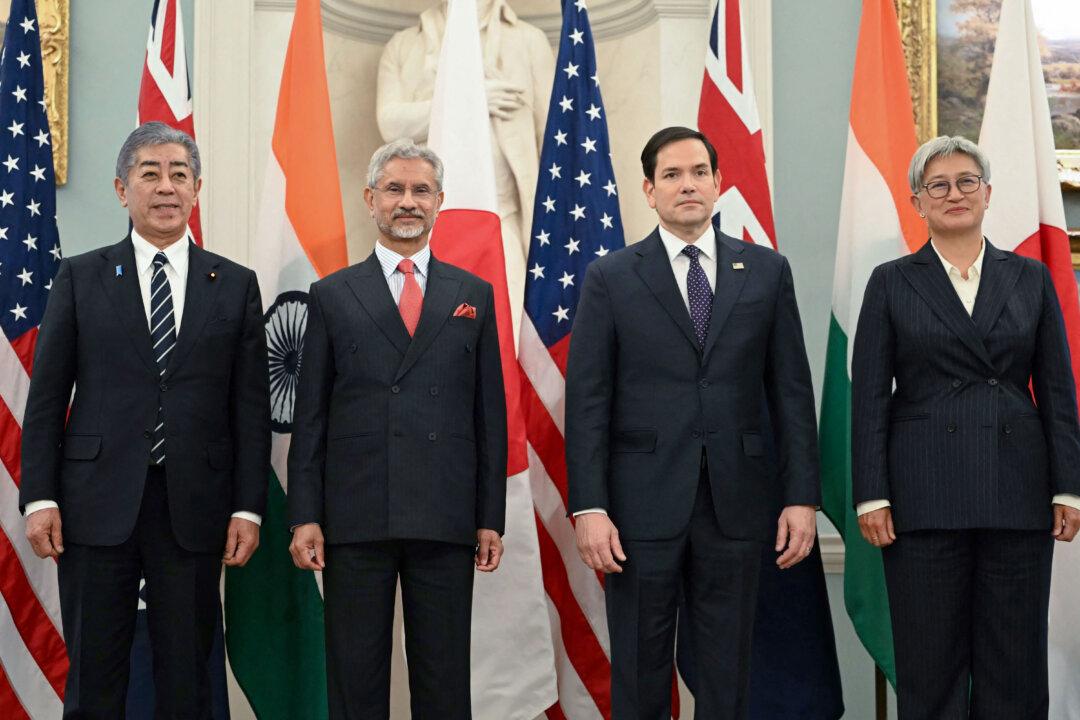WASHINGTON—Newly sworn-in Secretary of State Marco Rubio spent his first day on the job engaging with his peers from Australia, India, and Japan—a grouping of four that share concerns about the growing challenges from communist China.
The partnership, known as the Quad or the Quadrilateral Security Dialogue, has been around for nearly two decades. It has played an increasingly visible role in countering Beijing’s influence in the Indo-Pacific region, pushing back on the regime’s territorial claims in the South China Sea and pledging to advance cybersecurity cooperation to secure critical infrastructure and supply chains.





